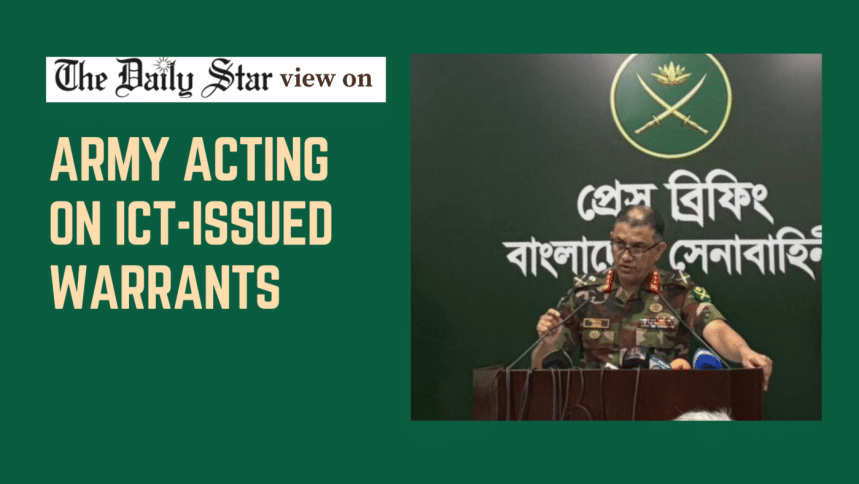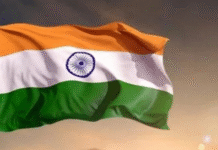
Last update on: Sun Oct 12, 2025 10:51 PM

We welcome the Bangladesh Army’s decision to act on the warrants issued by the International Crimes Tribunal (ICT) against 16 in-service ranking officers recently indicted for crimes against humanity, including enforced disappearance and torture in custody. Its announcement in this regard—that all but one of those accused officials have been placed under custody—has reassured observers and the public, dispelling social media rumours meant to create sensation and stir unwarranted political tension. These trials are vital to ensuring justice for the many victims of cruel and inhumane suffering.
It was also reassuring to hear Adjutant General Md Hakimuzzaman affirm, at a press briefing held at the Army Headquarters on Saturday, that “Bangladesh Army respects all laws recognised by the Constitution.” We hope that this spirit will be carried through in all its future actions. The nation and the international community will be watching closely to ensure that the army’s public pledge to cooperate with the ICT’s judicial process is followed through. We can recall that the United Nations fact-finding mission’s report on the July uprising atrocities also called for ensuring accountability of members of security agencies. Any issue with technical clarity in the ICT Act, hopefully, will not affect the administration of justice.
We also note the adjutant general’s assertion that those named by the ICT for alleged crimes were charged for their actions while working at the Directorate General of Forces Intelligence (DGFI) and the Rapid Action Battalion (Rab), and that these agencies at that time were not under the Army HQ. Distancing the accused from the army as an institution certainly deserves due consideration, as the DGFI functions under the Prime Minister’s Office—currently under the Chief Adviser’s Office—and Rab is an arm of the police.
Here comes the question of how the army as an institution can protect its sanctity and integrity from those who may tarnish it by committing criminal acts during their secondment to other agencies. An institutional mechanism of rigorous screening before their reinstatement must be developed. The question of differentiating between the army and its officers serving in various security agencies outside the force also reminds us of the need to reform these agencies.
There must be effective legal deterrents to prevent politicians from misusing security agencies—particularly the DGFI—for partisan purposes. Equally important is ending the abuse of power and impunity these agencies have long enjoyed on flimsy security grounds. Besides political workers, student activists, rights defenders, and academics, we in the media have also experienced DGFI’s overreach. It intimidated newsrooms so often that a climate of fear persisted for quite a long time, affecting press freedom.
We echo the calls made by some civil society organisations such as the Transparency International Bangladesh and the Human Rights Forum Bangladesh that the interim government must initiate meaningful reform of these security agencies, so that the incoming political government post-elections can carry the process forward. We need reforms that can prevent a reversion to the old practices of power abuse and the weaponisation of these agencies by political masters.
Source: https://www.thedailystar.net/opinion/editorial/news/army-cooperation-ict-trials-vital-4008141









